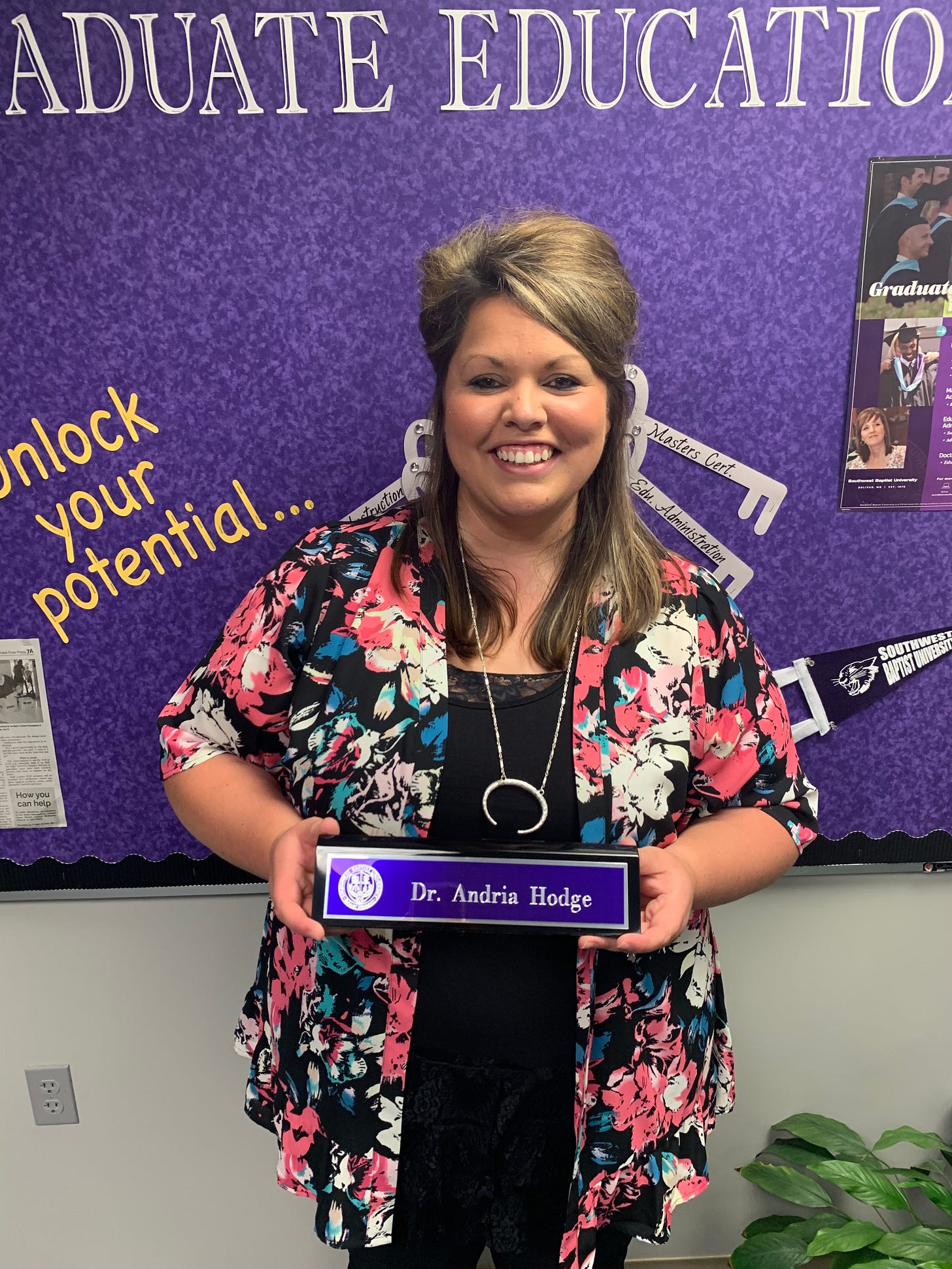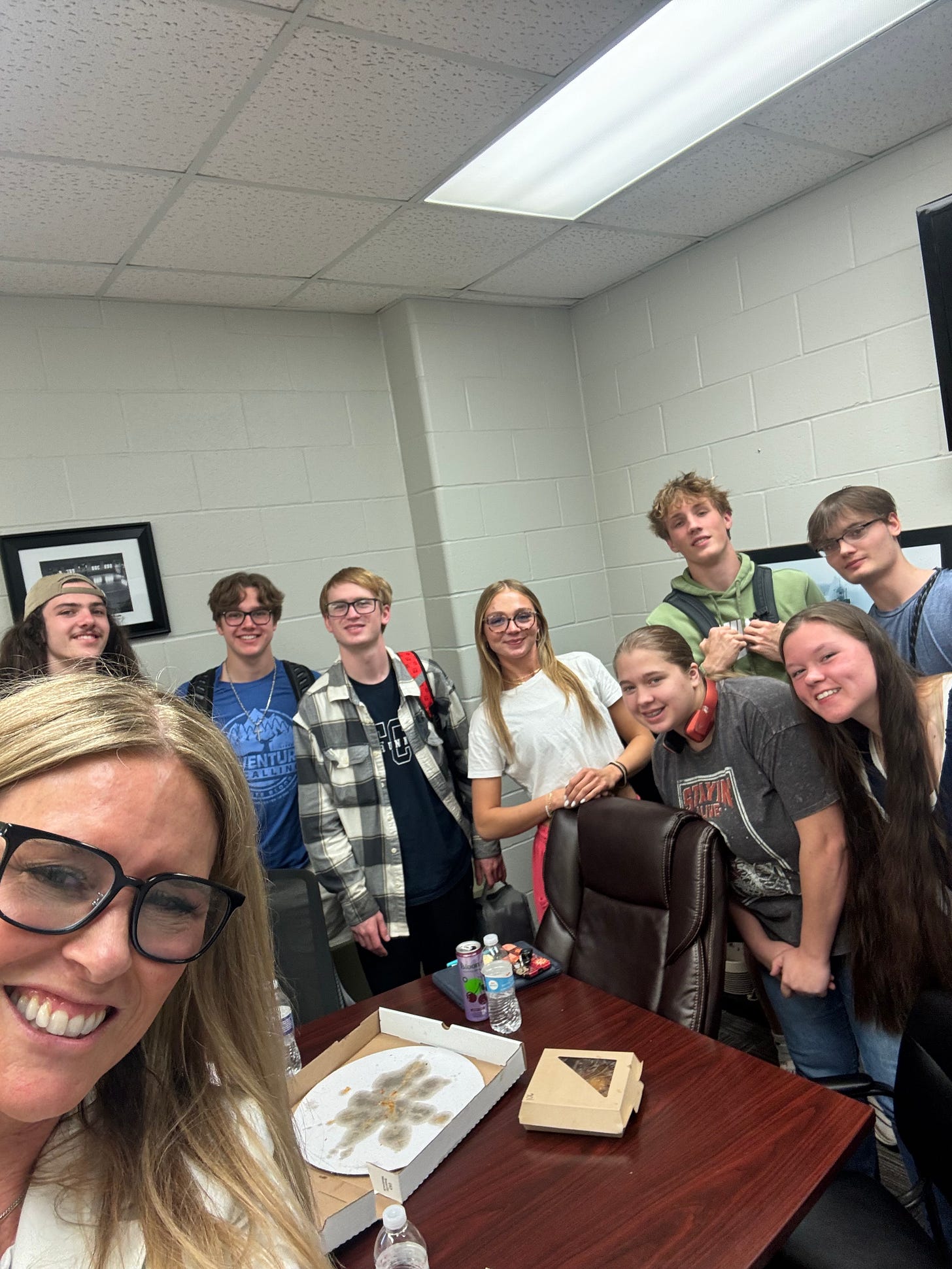The garage door wouldn't budge.
Standing there with my shoulders tensed as usual, I stared at this mechanical rebellion—the perfect culmination to a morning where I'd already managed to forget lowering the Waggoner's tailgate before attempting this very maneuver.
Another scurry-bruise. That's what I've taken to calling these moments—the small injuries we inflict upon ourselves through some toxic combination of multi-tasking, fragmented attention, and that ever-present worry humming beneath the surface.
My first quarter had been a symphony of scurry-bruises escalating into legitimate trauma. I'll spare you the details, but suffice to say they involved the four horsemen of the good excuse apocalypse: death, sickness, fear and worry regarding others we love, and an outsized prideful to-do list. Tension I couldn't resolve because it wasn't "my circus." A humbling reminder that not everything we encounter is ours to ring-master—a difficult lesson for those of us who instinctively believe we should fix everything in our paths. With so much happening at once, who wouldn't find themselves caught in that toxic combination of scattered focus and worry?
When things pile up like this, the broken parts of life can feel overwhelming. The tailgate. The garage door.
I called Paul Dulle, he of Dulle Overhead Doors and our neighbor. Tom, who ordinarily fixes such things for me, was already on a jobsite elsewhere.
He fixed the garage door in less than two minutes.
"It wasn't broken," he explained. "Just off track."
Sometimes we need another set of eyes to show us the difference between broken and merely misaligned. It still took two of us—I pressed the button while he guided things back into place.
This feels like the lesson quarter one was trying to teach me all along: In most situations, "collaboration and connectivity are the key—not fancy plans or titles."
There's a reason intelligent people inadvertently embody the definition of insanity—doing the same ineffectual thing over and over. The truth is we don't learn from experience alone; we learn from reflection on experience followed by revised action.
I was reminded of this when Andria Hodge, in one of her characteristically thoughtful moments of self-reflection, posed a rhetorical question that stayed with me: "Why did I just stop my daily gratitude practice when it was serving me so well?"
This is what Andria does beautifully—she reflects deeply on her experiences, finding patterns and wisdom that might otherwise go unnoticed. Her question made me consider how easily our most simple and effective habits derail. Why did I randomly stop taking my vitamins? Why did my friend who banned soda for five years suddenly take it up again?
This is what struck me when Paul dropped everything to help—some things aren't broken, they just need a quick, no-nonsense putting back on track. And it required my participation—pressing the button while he guided the door. The whole thing took less than two minutes—just like listening to someone else and asking a thoughtful question, or having someone extend such generosity in our own lives.
The Full Focus Planner sitting on my desk (one of many notebooks in my yet-to-be-integrated "notebooking plan") had scheduled me to be at OHS by 6:55 with Starbucks in hand. I missed that appointment dealing with the garage door.
But the learning—reaching beyond the scurry-bruise to pay attention to the present moment—was probably more valuable to my quarterly goals than whatever originally triggered the scurry.
Perhaps that's true for the larger challenges too. What initially felt broken beyond repair—the grief, the fear, the workplace tension—might simply be life running off its tracks, waiting for the right collaborative touch to guide it back into alignment.
It pays to consider if something is really broken, or just off track.
I am asking myself these questions now, and dear reader, if you're still here at this point, maybe it's because you, like me, might benefit from reflecting: Who needs you to listen thoughtfully, to ask the kind of reflective questions that might help guide their path back onto its tracks? And equally important—whose expertise do you need to humbly request, recognizing that sometimes the quickest fix comes from acknowledging you don't have all the answers? In both giving and receiving, we find our way back to the alignment that is our calling.
Yours in Faith, Hope, and Love, LN
PS in my own gratitude journal this morning, I listed “so much joy and fun and learning at yesterday’s senior lunches”:)







